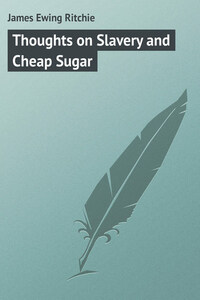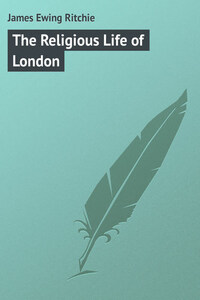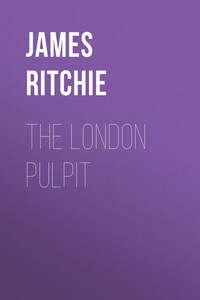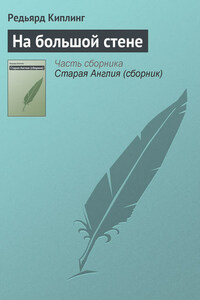CHAPTER I.
INTRODUCTORY. – CANADIAN TERRITORY AND POPULATION
Lunching one day in Toronto with one of the aldermen of that thriving city (I may as well frankly state that we had turtle-soup on the occasion), he remarked that he had been in London the previous summer, and that he was perfectly astonished at the idea Englishmen seemed to have about Canada. He was particularly indignant at the way in which it was coolly assumed that the Canadians were a barbarous people, planted in a wilderness, ignorant of civilization, deficient in manners and customs – a well-meaning people, of whom in the course of ages something might be made, but at present in a very nebulous and unsatisfactory state. It seems my worthy friend had gone to hear a popular Q.C. – a gentleman of Liberal proclivities, very anxious to write M.P. after his name – deliver a lecture to the young men of the Christian Association in Exeter Hall on Canada. Never was a man more mortified in all his life than was the alderman in question. All the time the lecture was being delivered, he said, he held down his head in shame. ‘I felt,’ said he, rising to a climax, ‘as if I must squirm!’ What ‘squirming’ implies the writer candidly admits that he has no idea. Of course, it means something very bad. All he can say is, that it is his hope and prayer that in the following pages he may set no Canadian squirming. He went out to see the nakedness, or the reverse, of the land, to ask the emigrants how they were getting on, to judge for himself whether it was worth any Englishman’s while to leave home and friends to cross the Atlantic and plant himself on the vast extent of prairie stretching between Winnipeg and the Rocky Mountains. What he heard and saw is contained in the following pages, originally published in the Christian World, and now reproduced as a small contribution to a question which rises in importance with the increase of population and the growing difficulty of getting a living at home.
As a rule, the English know little more of Canada than that it belongs to us – that it is very cold there in winter and very hot in summer. I happened to be on board the Worcester training-ship on the last occasion of the prizes being given away, and was not surprised to find that Canada was especially referred to as illustrating the defective geographical knowledge of the young cadets. In the London Citizen a few weeks later there was still grosser display of ignorance on the part of a writer who had gone to Montreal to attend the meetings of the British Association there, and who complained bitterly of the lack of garden-parties and champagne lunches. This victim of misplaced confidence owned that he had to put up with tea and coffee and non-intoxicating beverages when he did so far condescend as to accept Canadian hospitality. Yet the writer of that letter was a barrister, at this very time a candidate for Parliament. Had he an atom of common-sense, he might have known – this distinguished barrister and ornament of the British Association for the Advancement of Science – that Canada is a young country; that its wealth is still undeveloped; that the greater part of it is prairie; that the settler – in his heroic efforts to subdue Nature, to make the wilderness to rejoice and blossom as the rose, to build up a grand nation in that quarter of the globe, to spread in a region larger than the United States the Anglo-Saxon laws and civilization and tongue – has to renounce luxury, to scorn delights, to live laborious days. Canada is not the place for members of the British Association who long for the flesh-pots of Egypt or the champagne-cup. In Canada one has to live simply and to work hard. He who does so work, though in England he may die a pauper, there becomes a man. Canada offers to all independence, a fertile soil, a bracing air. At present there is little chance of the majority of its people being enervated by luxury or demoralized by wealth.
Canada is a country, however, with room and scope for millions who must starve and die in Europe. Its area is 3,470,392 square miles, and its most southern point reaches the 42nd parallel of latitude. It possesses thousands of square miles of the finest forests on the continent, widely spread coal fields, extensive and productive fisheries, and rivers and lakes of unequalled extent. The country is divided into eight provinces, as follows: Nova Scotia, containing 20,907 square miles; New Brunswick, 27,174; Prince Edward Island, 2,133; Quebec, 188,688; Ontario, 101,733; Manitoba, 123,200; the North West, 2,665,252; British Columbia, 341,305. Newfoundland lies outside the Dominion, for reasons best known to itself.
According to the census taken in 1881, the population at that time numbered 4,324,810, distributed as follows: Nova Scotia, 440,572; New Brunswick, 321,233; Prince Edward Island, 108,891; Quebec, 1,359,027; Ontario, 1,923,228; Manitoba, 65,954; the North West, 56,446; British Columbia, 49,459. These figures must be much added to if we would get an idea of the growth of population, especially in the North West, which has increased by leaps and bounds. Up to 1870 it was as it had been since the charter of Charles II. – the happy hunting-ground of the Hudson Bay Company. As late as 1870 it had no railway communication, no towns or villages, few post-offices, and no telegraph. There must be a million of people settled there by this time, and yet it is a wilderness almost untrod by man. The origins of the populations are returned as follows: 891,248 English and Welsh; 957,408 Irish; 699,863 Scotch; 1,298,929 French; 254,319 Germans. The balance is made up of Dutch, Scandinavians, and Italians. A large number of persons who were born in the United States are to be found in Canada – and why not? They have in Canada a government quite as free as in the United States, though the Canadians prefer to have a holiday on the Queen’s birthday rather than the 4th of July, and an English Viceroy – who at any rate is a gentleman – to an American President. Anywhere in Canada the Englishman is at home. The people have an English look. Directly you pass the border into the States you see the difference. There is an astonishing contrast between the healthy Canadian and the lean and yellow Yankee.














